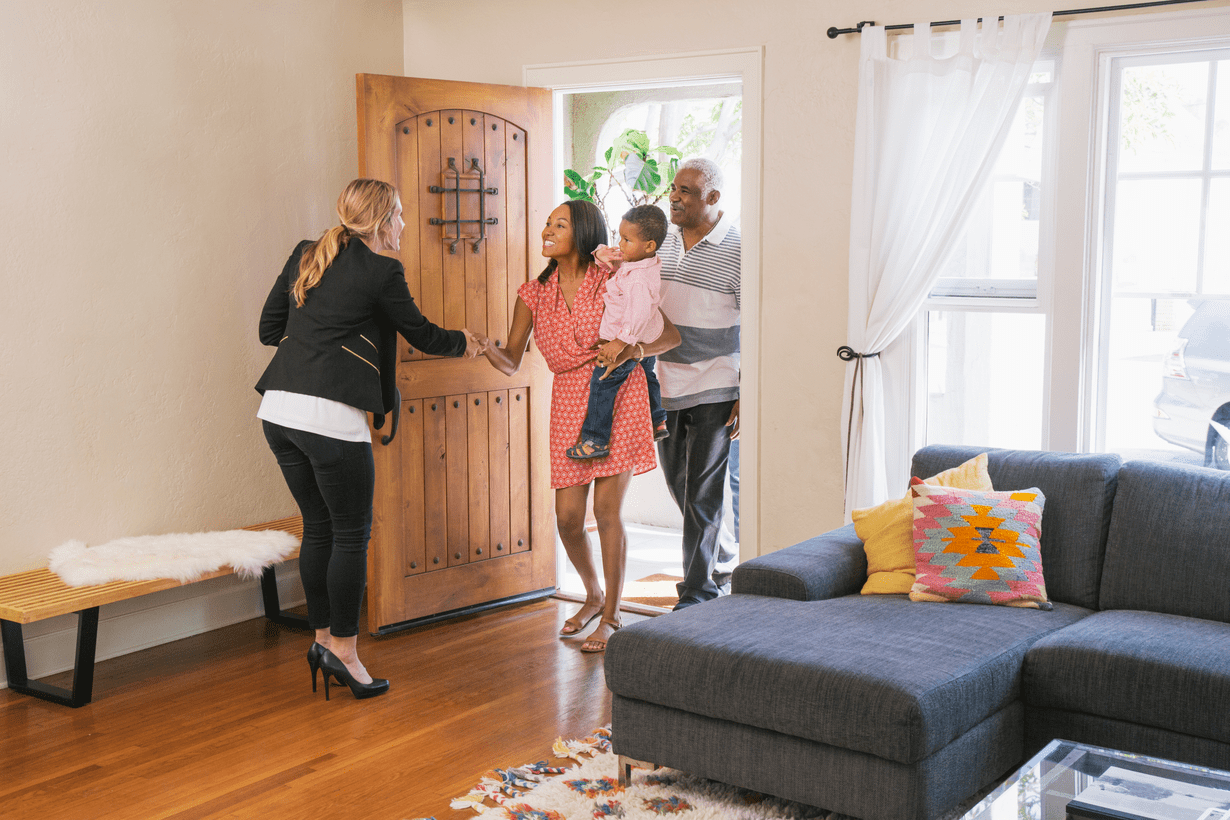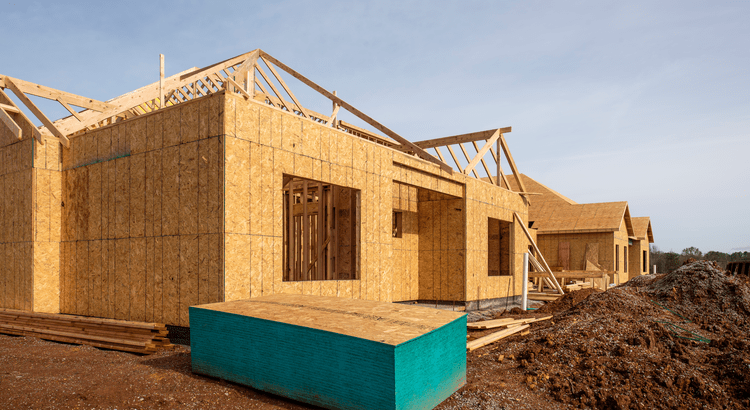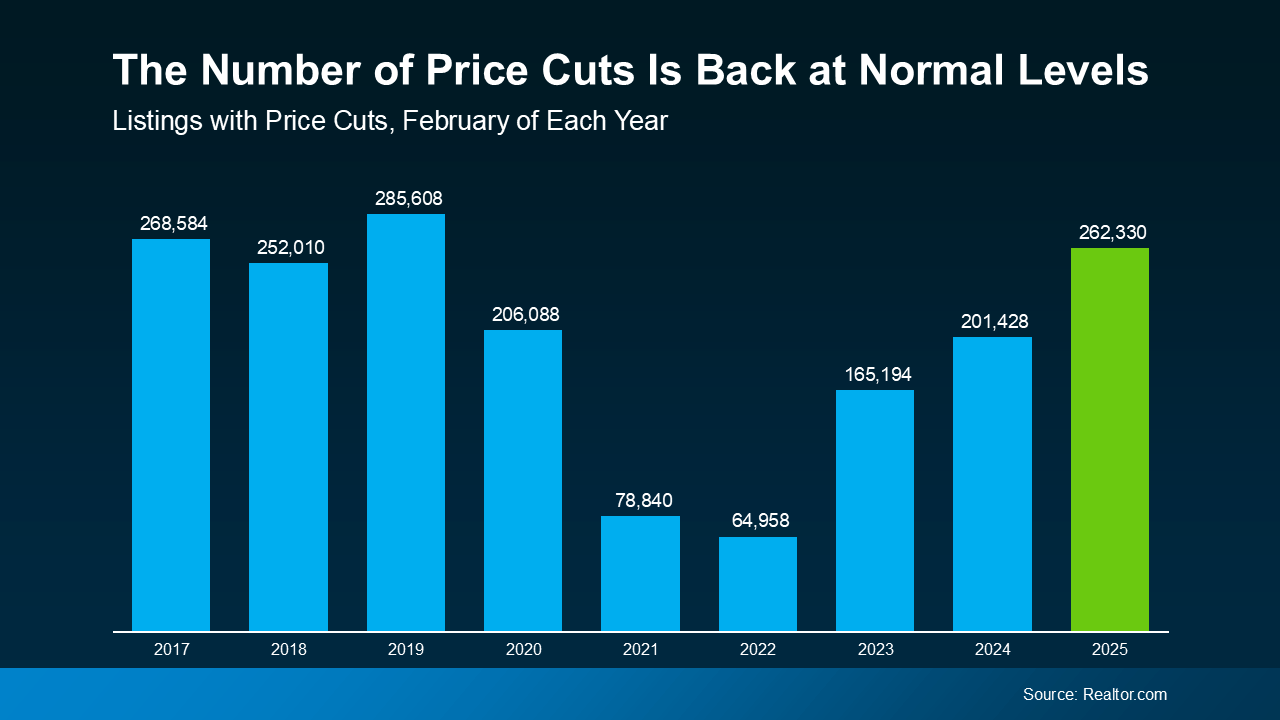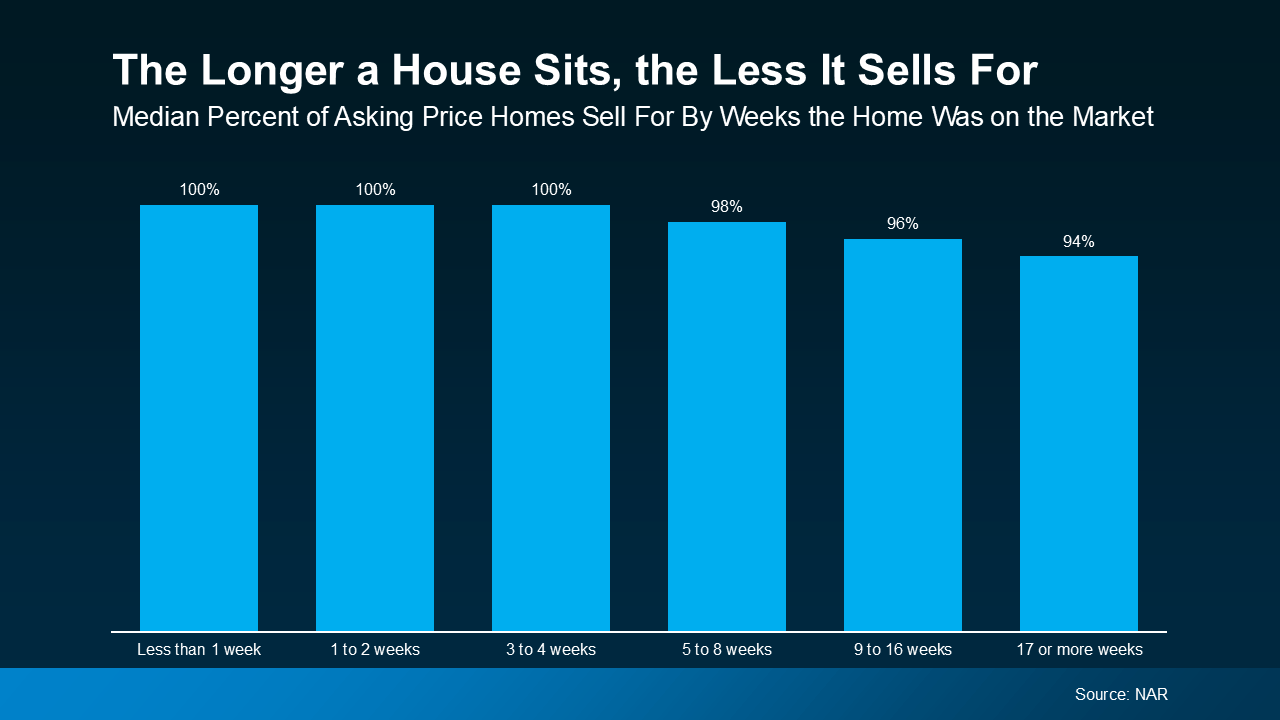The #1 Thing Sellers Need To Know About Their Asking Price
The #1 Thing Sellers Need To Know About Their Asking Price

When selling your home, the goal is usually to sell quickly and for the best price. However, many sellers are currently overpricing their homes without realizing the market has shifted due to increased inventory. As a result, price reductions are becoming more common, even though they can often be avoided.
Data from Realtor.com shows that in February, price cuts were higher than in any other February since 2019 (see graph below):
If 2019 was the last truly typical year for the housing market, this shift is significant—we’re returning to normal conditions.
Today’s market isn’t the same as the frenzied seller’s market of recent years. You may not be able to price your home as high as a neighbor did during the peak of the pandemic, so it’s important to adjust your expectations.
The reality is that overpricing your home could lead to price reductions later, which may result in lower offers than if you had priced it correctly from the start. To avoid this, working with an experienced agent is key.
How an Agent Helps You Price Your Home Accurately
A knowledgeable agent doesn’t set a price at random. Instead, they use market data and trends to ensure your home is valued appropriately for today’s conditions. This helps attract serious buyers and can even encourage competitive offers. Here’s how an agent determines the best price for your home:
-
Reviewing Recent Sales: Looking at what similar homes in your area actually sold for, not just their listing prices.
-
Analyzing Market Trends: Understanding what buyers in your area are willing to pay right now.
-
Developing a Pricing Strategy: Positioning your home to generate interest and a sense of urgency among buyers.
The Risks of Overpricing
Some sellers choose to start with a higher price, hoping to get full asking or leave room for negotiation. However, this strategy often backfires because:
-
Buyers may overlook your home: Budget-conscious buyers might skip a home that seems overpriced rather than negotiate.
-
It could sit on the market longer: A lingering listing may give buyers the impression something is wrong with the home.
-
You might sell for less: Homes that undergo price reductions often sell for less than they would have if priced correctly from the start.
This trend is reflected in data from the National Association of Realtors (NAR), which shows that the longer a home stays on the market, the lower the final sale price tends to be.
The graph illustrates that homes typically sell at full price within the first four weeks if they are priced at or just below market value. When a home is priced correctly, it attracts buyers quickly, leading to strong offers—sometimes even above the asking price due to competition.
However, if a home is overpriced, it tends to sit on the market longer. The graph also shows that after four weeks, sale prices begin to decline. As buyer interest fades, sellers often have to lower their price or accept lower offers to reignite attention.
Bottom Line
Overpricing can lead to a stagnant listing, forcing price cuts later. Let’s connect to ensure your home is priced right from the start, so it sells quickly and for the best possible price.
Categories
Recent Posts












